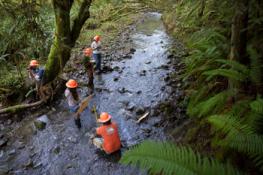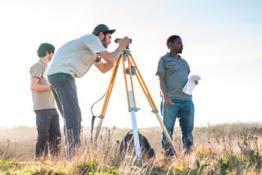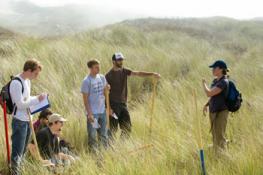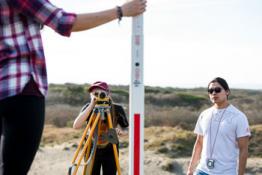Senior Capstone
Everything you’ve learned inside and outside the classroom comes together your senior year with the senior capstone.
The capstone course for all Environmental Science & Management majors is the time you’ll apply theory, research and field work to real-world environmental problems.
For example, groups of students worked with the City of Arcata to improve the use of the city’s natural resources. One group assessed the Arcata Community Forest for recreational uses causing wear and tear on and off trails. By studying how people use the forest, students made recommendations that served as a basis for revising the current plan for the Forest as well as suggesting measures that would decrease resource damage.
Take Back the Tap, a student club on campus, began as a project in the Senior Capstone course. It continued for two semesters culminating in several hydration stations for filling water bottles, and a reduction in the use of plastic bottles for water, leading to the complete ban that is now in place.
The area between the Forestry and Natural Resources buildings is now an aesthetically and environmentally pleasing landscape as a result of Senior Capstone projects that removed non-native plants and planted a variety of native species.
Students also worked with the city and nonprofit groups, engaged in a planning effort and educational campaign to reduce the number and negative effects of invasive non-native plant species in the nearby dunes, municipal parkland, and private holdings.
Other groups working on issues about garbage and recycling promoted composting by planning workshops and setting up a website to provide information on backyard composting. Students also examined waste reduction at the source. They proposed cost-effective ways for the city to reduce and reuse instead of relying on recycling. By looking at source reduction and the challenges of implementing it, they helped the city figure out ways to be better resource stewards.







